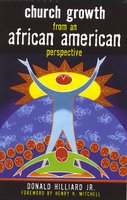By: Angela Lee Price
Interpreting the Pauline Epistles by Thomas R. Schreiner, originally published in 1990 is a book written to help college religion majors, seminarians and pastors interpret the Pauline letters. It is one in a series of seven books written by various scholars aimed at providing principles and methods for New Testament exegesis. Schreiner employs methods distinct to interpreting the Pauline Letters, the Letters Genre, while other scholars utilize principles and methods of interpretation distinct to each of the three remaining New Testament literary genres, the Gospels, the Acts of the Apostles, and the Apocalypse in The Guide to New Testament Exegesis series based on Gordon Fee’s introduction to New Testament Exegesis: A Handbook for Students and Pastors written in 1983.
Interpreting the Pauline Epistles is divided into nine chapters wherein Schreiner addresses the following topics:
· Understanding the Nature of Letters
· Doing Textual Criticism
· Translating and Analyzing the Letters
· Investigating Historical and Introductory Issues
· Diagramming and Conducting a Grammatical Analysis
· Tracing the Argument
· Doing Lexical Studies
· Probing the Theological Context
· Delineating the Significance of Paul’s Letters
Interpreting the Pauline Epistles by Thomas R. Schreiner is a power-packed book. It not only provides instruction on proper exegesis of the Letters Genre, it also provides a wealth of resource material on the subject. Thomas Schreiner list over one hundred books pertaining to New Testament history, culture, primary and secondary sources, sociology and psychology, including dictionaries, encyclopedias and commentaries to aid Bible students, seminarians and pastors in the exegetical process. Some people may find this book to be a valuable resource, particularly if they are interested in stocking their library with information on interpreting the Pauline letters.
The book offers over one hundred sources to aid the Bible students in interpreting the Pauline letters, however, I could not find one recognizable African American scholar listed among its many recommendations, nor could I find one recognizable female author. I would not recommend this book to anyone interested in understanding the African American perspective on biblical interpretation, nor would I recommend it to female preachers and pastors of color, particularly if they have not read books on the same subject by African American scholars.
Finally, I feel very strongly that African American scholars are not being supported through the purchase of their books as they should. Dr. Forrest Harris, president of American Baptist Bible College in Nashville made this point eloquently his November 17, 2005 sermon, “Preaching Freedom Today” while at Simmons College of Kentucky for the school’s Founder’s Day observance. He stated in the evening address that, “We are too busy gobbling up material by people like Robert Schuller, Steven Covey, Rick Warren, T.D. Jakes, Charles Stanley and others as if black theologians and black poets haven’t written anything.”
I agree with Dr. Harris. When African Americans purchase materials by white authors exclusively or in preference to African American contributions, we not only deny the critical abilities of people of color, but also contribute to the proliferation, to use Dr. Harris’ words of Rick Warren’s work, “non-prophetic discourse” prevalent today.
(An abbreviation of an book review assignment originally submitted to Dr. Stephen K. Awoniyi, Professor, New Testament Survey 1, Fall Semester 2005, Simmons College of Kentucky.)
An excerpt from Dr. Forrest Harris' message, Preaching Freedom Today, Simmons College of Kentucky, Founder's Day observance, November 13, 2005.
Remember, it is not Mohammad, Buddha, Confucius, nor New Ages that saves. Jesus saves!

